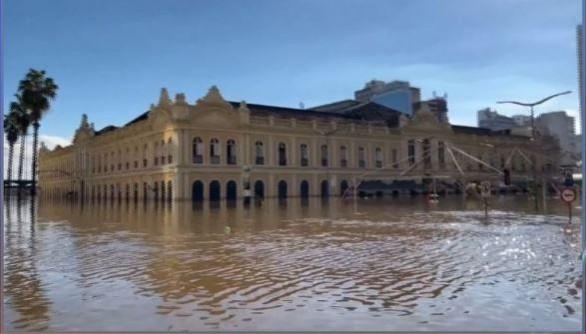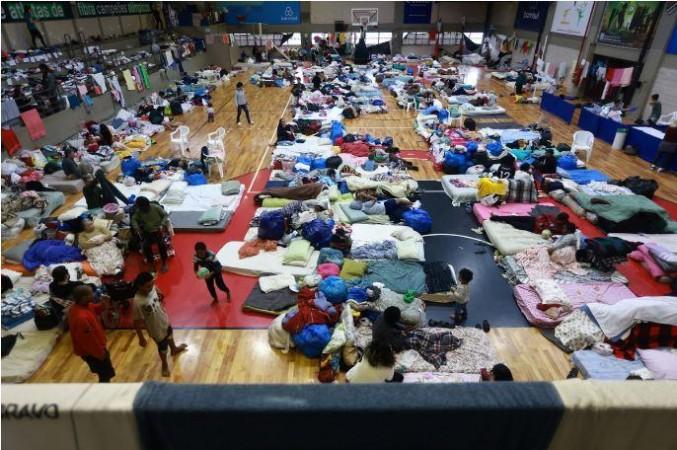
The discovery of four more bodies in the last few hours in south Brazil's weather-battered Rio Grande do Sul state has pushed the death toll to 161, the Civil Defence agency said.
Record rainfall has devastated the state since April 29, leading to deadly floods and mudslides in 464 cities and affecting more than 2.2 million residents in both urban and rural areas, including the capital Porto Alegre, Xinhua news agency reported on Tuesday.
Porto Alegre's international airport was closed indefinitely, so the federal government authorised the Canoas Air Force air base to be used for commercial flights. The death toll is likely to rise in the coming days as 85 people remain missing and 806 have been injured, the agency said.
Security forces and first responders have rescued nearly 82,666 survivors across Brazil's southernmost state, an agricultural powerhouse bordering Argentina and Uruguay.
Conspiracy theories go viral
As often occurs during disasters, various conspiracy theories have surged on social media. One woman on the platform X claimed the events in Rio Grande do Sul were unnatural, blaming the US-based HAARP project, which studies the ionosphere with large antennas in Alaska.
Other users posted images of airplanes over Rio Grande do Sul, alleging the condensation trails contain toxic chemicals from a secret government program. These theories suggest a sinister denial of climate change, accusing governments and scientists of orchestrating "planned tragedies."

These ideas ignore the scientific consensus that climate change is driving extreme weather.
Carlos Nobre, head of Brazil's National Institute of Science and Technology for Climate Change, explained that a blocked low-pressure system, combined with water vapor from the Amazon, caused the historic rainfall, exacerbated by global warming.
President Luiz Inacio Lula da Silva has called the disaster an "alert" for the planet, contrasting with former president Jair Bolsonaro, who downplayed climate change. A Quaest poll found most Brazilians believe climate change contributed to the disaster.
Conspiracy theories, including those about "chemtrails" and HAARP, have gained traction. These discredited ideas claim that jets spread chemicals activated by HAARP to manipulate weather. However, jet trails are merely condensed water vapor, and HAARP, now run by the University of Alaska, Fairbanks, cannot alter weather.
Nobre dismissed these theories as physically impossible, noting that instruments in the ionosphere cannot intensify weather events.
Raquel Recuero from the Federal University of Pelotas stated that organized groups spread these theories to gain influence. They thrive on desperation and blend with political and religious discourse, undermining trust in democracy's fundamental institutions.
The challenge, she noted, is educating the public to discern truth from falsehood.
(With inputs from IANS)








